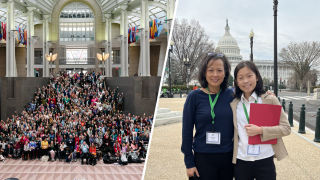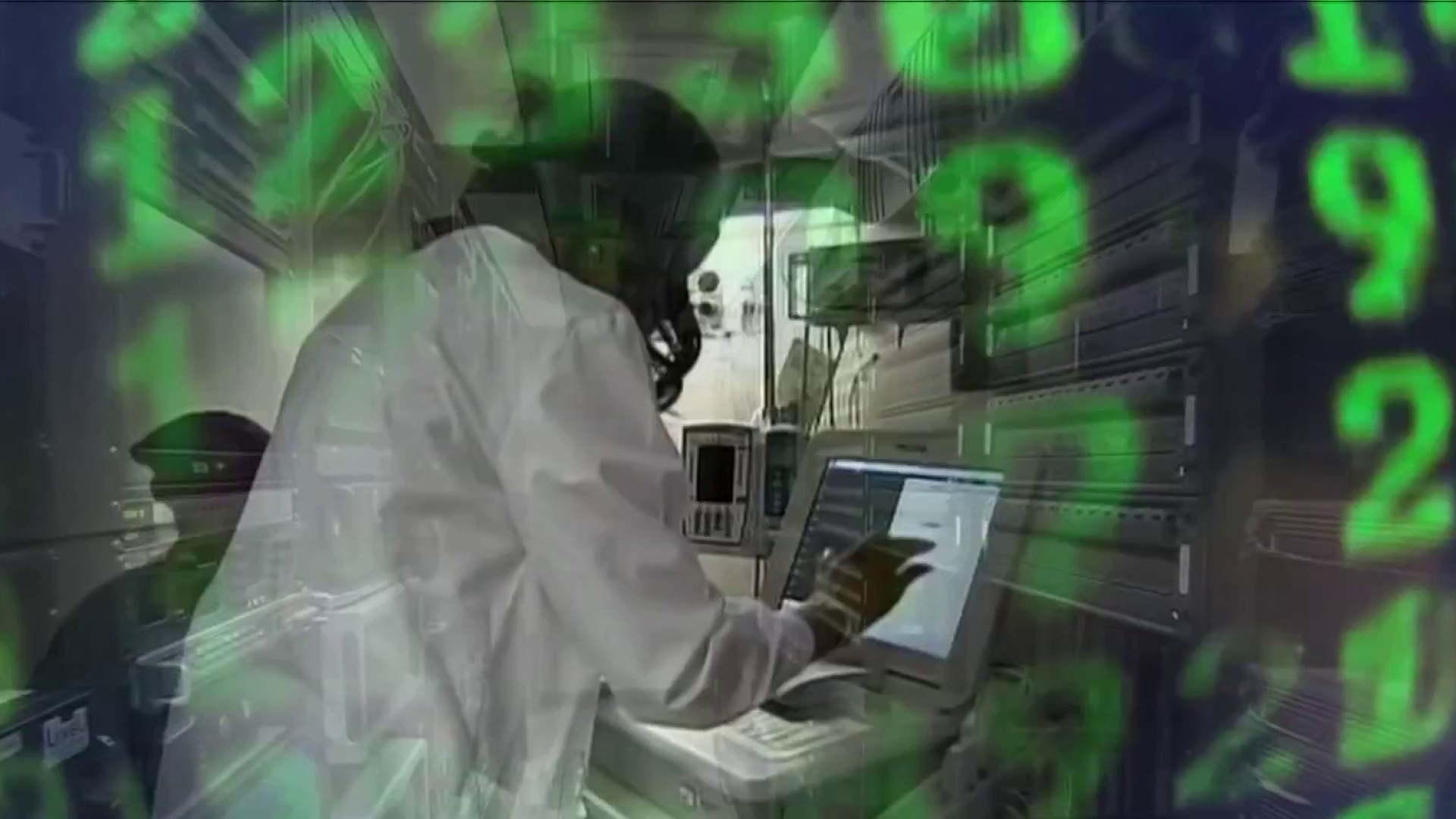
When Nell Choi of McLean, Virginia, was just 9 years old, she began experiencing debilitating dizziness and nausea. After an MRI showed inflammation in her brain stem, she was diagnosed with neuromyelitis optica spectrum disorder, a rare disease that affects 1 to 10 in every 100,000 people.
Now, at 15, Nell is an advocate for the rare disease community.
Nell and other patients and advocates from the D.C. area and beyond will gather on Capitol Hill from Sunday, Feb. 25, to Wednesday, Feb. 28, to talk to their members of Congress and build community as part of Rare Disease Week.
The annual events are hosted by the Rare Disease Legislative Advocates, which is a program of the EveryLife Foundation for Rare Diseases.
We're making it easier for you to find stories that matter with our new newsletter — The 4Front. Sign up here and get news that is important for you to your inbox.
Nell called past years' events empowering.
“It was incredibly validating that [members of Congress] were willing to listen to my story and that I not only had the opportunity to advocate for a bill that would reflect it and connect it to my own experience, but knowing that what I'm doing is able to help others in the community was really special,” she said.
Over 700 people from across the U.S. are expected to attend and seek change, said Stephanie Riordan, director of patient programs and Maryland team coordinator for EveryLife.
“The room at our legislative conference, which is our big gathering where we start to train our advocates on what our asks are, is so electrifying and empowering, and it almost feels like a big family reunion," she said.
'It can happen to anyone'
For a disease to be considered rare, it must affect fewer than 200,000 Americans. With more than 10,000 conditions considered rare, that adds up to more than 30 million Americans with a rare disease, the majority of whom are children, according to the National Organization for Rare Disorders (NORD).
“Even though a rare disease might be rare on its own, collectively, it's actually not even that rare, and it can happen to anyone,” Nell said. “There are probably so many people in your community that you don't even realize that have a rare disease or know someone with a rare disease.”
That’s why Rare Disease Week is also about building community.
“It's a way to not only bring the community together and share our stories and share our journeys but also share the momentum that's happening,” Riordan said. “It's a way to keep that momentum, to celebrate that momentum and ultimately ensure that people who are in the 'Rare' space know that they are not alone and that their voice really does matter.”
What's at stake
The ability to cross state lines for care: One of the main legislative priorities for some advocates this Rare Disease Week is promoting the Accelerating Kids' Access to Care Act. The bill seeks to remove barriers for children on Medicaid and the Children’s Health Insurance Program who need specialized care that’s only available outside their home state.
“It's difficult for them to cross state borders, state lines, to be able to get the care that they need and have it approved," Riordan said. “So, it's really difficult if a child lives in Northern Virginia, per se, and they need treatment with a specialist with Children's National in D.C., for example, or Hopkins in Maryland, for example.”
Reforming 'step therapy' or 'fail first' policies: Another priority, according to advocates, is the Safe Step Act. Step therapy, also called "fail first," is when an insurance company makes a patient try multiple, less expensive treatments before approving what their doctor actually prescribed, sometimes leading to worse outcomes. Safe Step requires group health insurance plans to create a clear exception process for step therapy and ensure that requests are responded to quickly.
NORD grades states on a variety of categories relating to rare disease policies. D.C. got an "F" and Maryland got a "C" when it came to regulating and reforming step therapy protocols. Virginia got an "A."
Riordan, who has a rare disease called idiopathic intracranial hypertension, struggled with step therapy for four months before her insurance approved the medication her doctor prescribed.
“I knew what to do in this situation. I had the resources during this. It still took me four months,” she said. “But there are so many people in the 'Rare' community that they'll hear you have to do step therapy and accept that as what they need to do and not know to advocate or not know how to advocate, and that was almost more difficult than me not having my own medication – knowing that there's people like this each and every day.”
Priority review for treating children: Marie Wood, an advocate from Virginia Beach, said she will advocate for reauthorization of the Rare Pediatric Disease Priority Review Voucher Program, which helps give priority review to treatments for rare pediatric diseases, which could expedite the process for these treatments to reach patients.
Wood is the mother of five sons, two of whom were born with a rare genetic disease called myotubular myopathy. The older of the two, Reid, died last year at 15.
“In the case of our kids, when every breath they take is dependent on a machine, even when they're stable, there's just no guarantee that we have another day, that we have more time,” Wood said. “So, saving those months might not seem like a lot to somebody else, but us, like the people who are living day by day, just trying to survive, that can make all the difference.”
Considering patient experiences: Also on the table is the Benefit Act. The bill would require the Food and Drug Administration to take relevant patient experience data into account in the risk-benefit assessment that is used to approve new drugs.
“I think patients and what they think and how they feel and then how the treatment impacts them and what they prefer and what they would want should be included in any decision that the FDA is making," said Lauren Stanford, the senior advocacy director at Parent Project Muscular Dystrophy, which supports patients and families affected by Duchenne muscular dystrophy.
How to participate
While the focal point of Rare Disease Week is the legislative conference and meetings with lawmakers, there's something for everyone, Riordan said.
The week begins with a documentary screening and reception. On Monday is the legislative conference and a meetup for advocates age 16 to30. Tuesday is when the congressional meetings start, and Wednesday is filled with briefings, discussions and a reception for EveryLife’s Rare Artist program.
Virtual registration is open for the documentary screening, the legislative conference and some roundtables and briefings. Congressional meetings will be held only in person.
Sign up for our Breaking newsletter to get the most urgent news stories in your inbox.
Nell encouraged first-time participants to share their stories.
“No matter what, whether you think people are gonna be like, ‘Oh, that's so weird’ or anything,” Nell said. “It could actually help someone else who might be feeling similar to you, or it could just inspire someone else to take action to want to help. Your voice matters.”



